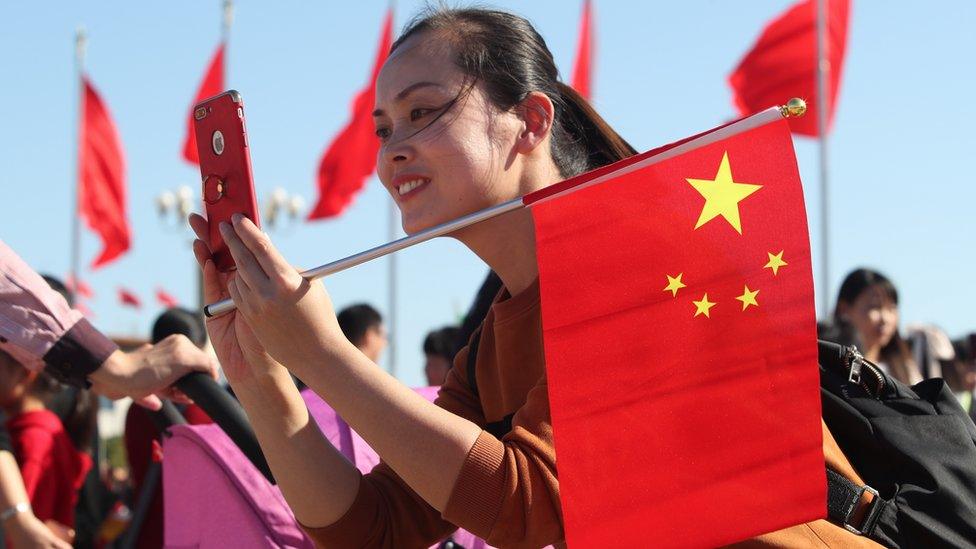Huawei arrest of Meng Wanzhou: A 'hostage' in a new US-China tech war
- Published
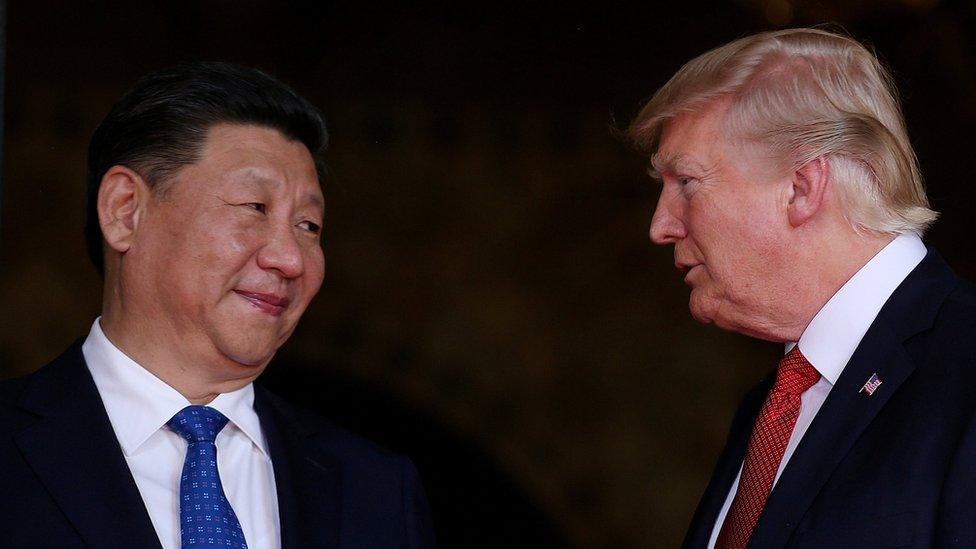
It is hard to overstate the symbolism and significance of the arrest of Meng Wanzhou, Huawei's chief financial officer and daughter of its founder. Huawei is the crown jewel of Chinese tech and Ms Meng is effectively its princess.
On December 1, the same day as President Trump and President Xi sat down at the G20 over grilled sirloin and caramel pancakes, to work on easing the trade war, Ms Meng was arrested in Canada and is now facing extradition to the US.
Although it's still not clear what the charges against her are - we know that the US has been investigating Huawei for possible violations of US sanctions on Iran - this is not simply a case about the arrest of one woman, or just one company.
This arrest could materially damage the relationship between the US and China at possibly one of the most sensitive times between the two countries in their long and torrid history.
"It could not come at a worse time and it is probably going to put a cloud over any upcoming negotiations," Vinesh Motwani of Silk Road Research told me. "The market had already turned more sceptical over the G20 agreement in recent days. This is only going to make the market more sceptical any deal can be reached. "
Rapprochement averted
Tensions have been rising between Washington and Beijing, not just on trade. But at that G20 meeting in Buenos Aires, it looked like the two sides had at least decided to talk, and thrash things out over a 90-day period.
Amongst those issues are technology concerns, which are front and centre of this trade war. Even if it wasn't clear how united China and the US may have been on the objectives, the very fact that discussions were taking place were seen as a semi-positive for the global economy.
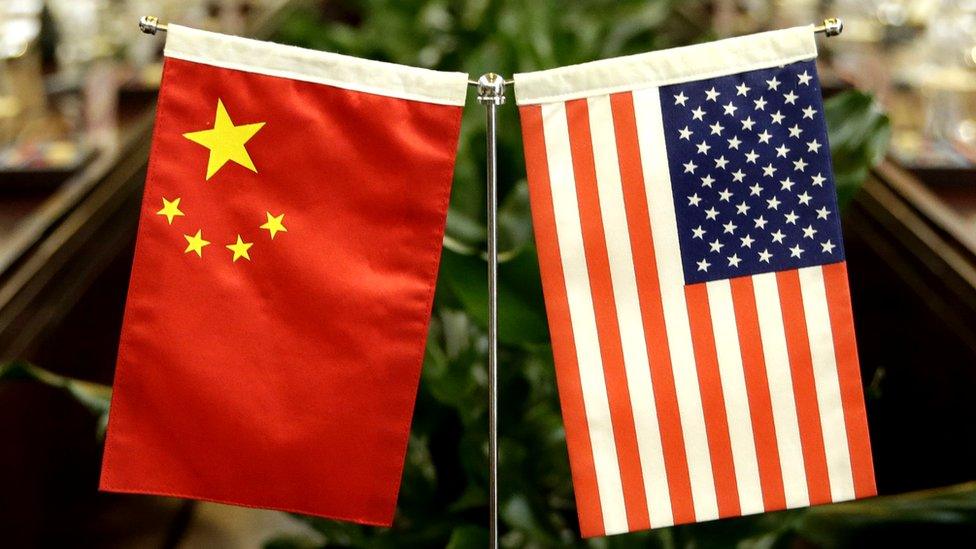
The two superpowers need to appear strong in their home markets
'Hostage taking'
But this arrest is likely to be seen by China as an attack and "hostage taking", says Elliott Zaagman, who has covered the Chinese firm for the better part of the last two decades.
"China has a reputation for making agreements and not keeping them, not following through," he told me on the phone from Boston. "There's a theory that this could be a way for the US to hold Beijing to its word on the trade war."
If so, it is a move the Chinese media has not taken well.
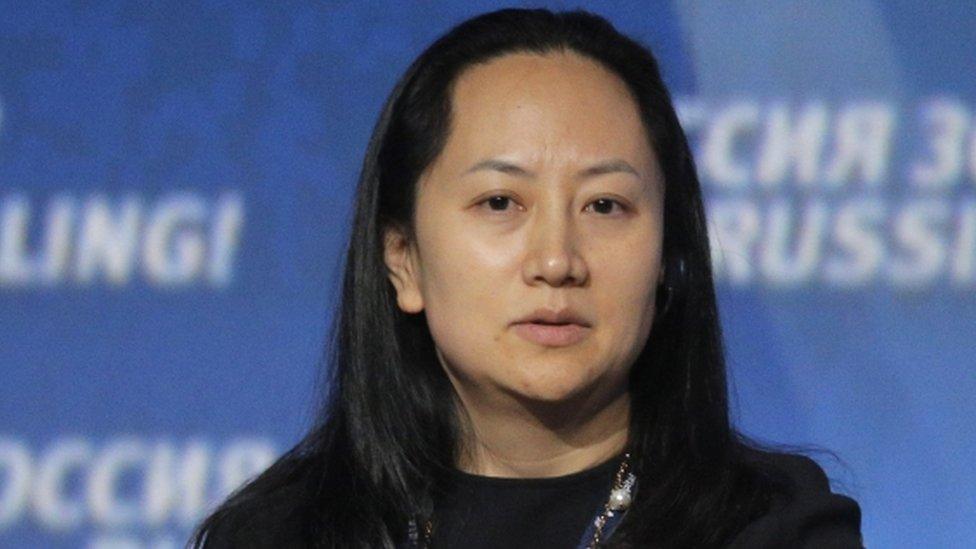
Meng Wanzhou, Huawei's CFO, was detained while transferring between flights in Vancouver
"The US is trying to find a way to attack Huawei," says Hu Xijin, editor in chief of the Chinese and English editions of the Global Times - a publication often seen as a mouthpiece of the Chinese government.
"It is trying to keep Huawei down. That's why it has pressured its allies not to use Huawei's products. It is trying to destroy Huawei's reputation."
What Mr Hu is referring to is the recent rejection of Huawei's services by a number of US allies, including Australia, New Zealand and most recently the UK's BT which says it won't be using Huawei equipment in the heart of its 5G mobile network when it is rolled out in the UK (although it does still plan to use Huawei's mast antennas and other products).
There's no evidence of Huawei having ever been engaged in any spying or handing over of data to the Chinese government. In fact, whenever I talk to Huawei executives privately they tell me how frustrated they are because of how the US government and Western media unfairly paints them as a Chinese state-owned company that does Beijing's bidding.
Company sources tell me that Huawei should be seen as the modern, dynamic and law-abiding global firm that it is, and that the US's narrative is flawed and unfounded.
Still, Huawei's founder, the father of Ms Meng, is Ren Zhengfei - a former military officer in the Chinese army. And the fact remains, as Mr Zaagman points out in a recent piece for The Lowy Institute, "the firm's relationship with the Chinese People's Liberation Army remains an issue of concern and opacity".
Which is why the US says countries must be wary of Chinese companies like Huawei. Under China's laws, private companies and individuals may be obliged to hand over information or data to the government if they are indeed asked.
It's that possibility, government sources say, that is scaring them off doing business with Huawei.
Huawei has told me this is completely untrue, and other Chinese academics and business people have also rejected this notion.
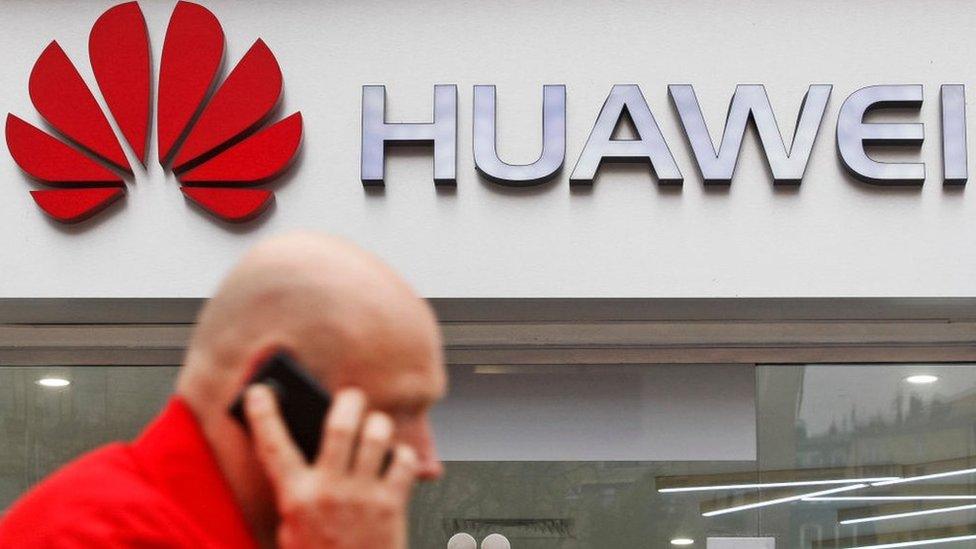
Huawei is one of the largest telecommunications equipment and services providers in the world
Mr Hu of the Global Times agrees: "The Chinese government would not do this. China would not hurt its own enterprises. If it hurts its own companies, how would it benefit the country? Even if a middling or low-level official were to ask it, Huawei will have the power to refuse any kind of government request."
Many in China will see this as yet another attempt to contain the country's rise, by limiting its most global firms' access to international markets.
"This could further endanger Huawei's 5G aspirations outside of emerging markets," says Tony Nash of Complete Intelligence, on the line from the US.
"If Huawei is being investigated it could put both Huawei and ZTE on the back foot as other equipment makers gain a lead in North America, and potentially other developed markets."
Other countries
It's not just developed markets where Huawei may be losing ground. The scrutiny is building in emerging markets too. Industry sources tell me that the US has been putting pressure on Asian allies to stop them from using Huawei's equipment. The Solomon Islands and Papua New Guinea were the latest recipients of this pressure, and India is thought to be next.
So what does this mean? The gloves are off. You should be under no illusion what this latest move by the US means for the relationship between the world's two largest economies: things have taken a dramatic turn for the worse.
- Published6 December 2018
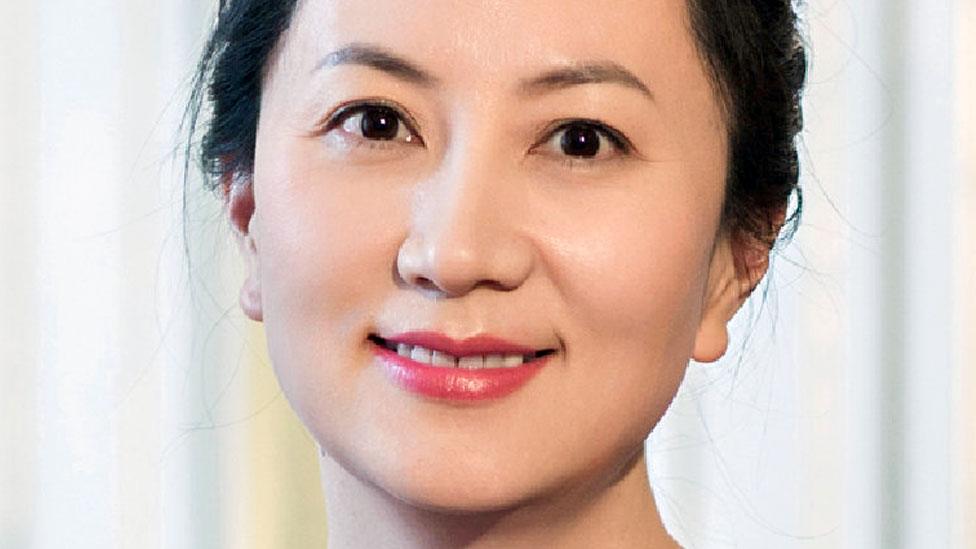
- Published2 December 2018
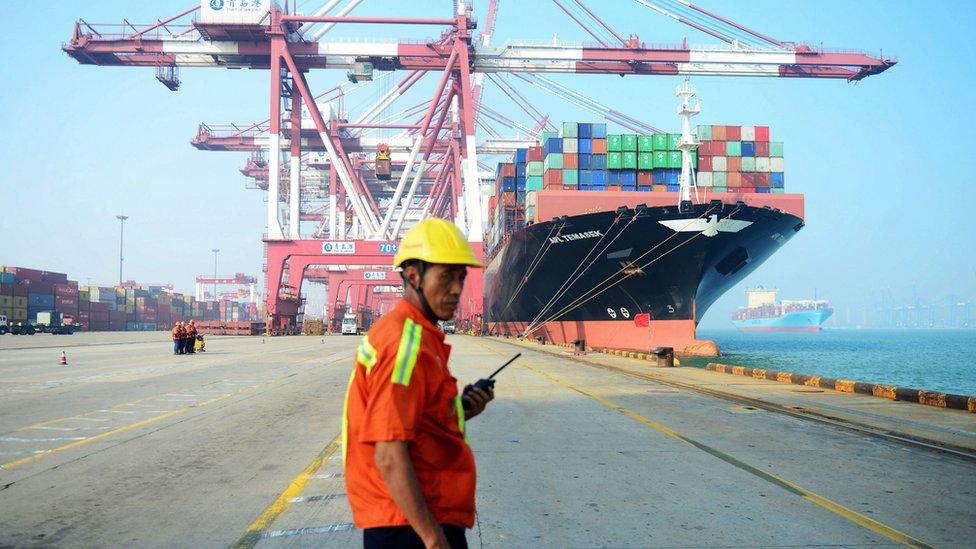
- Published27 November 2018
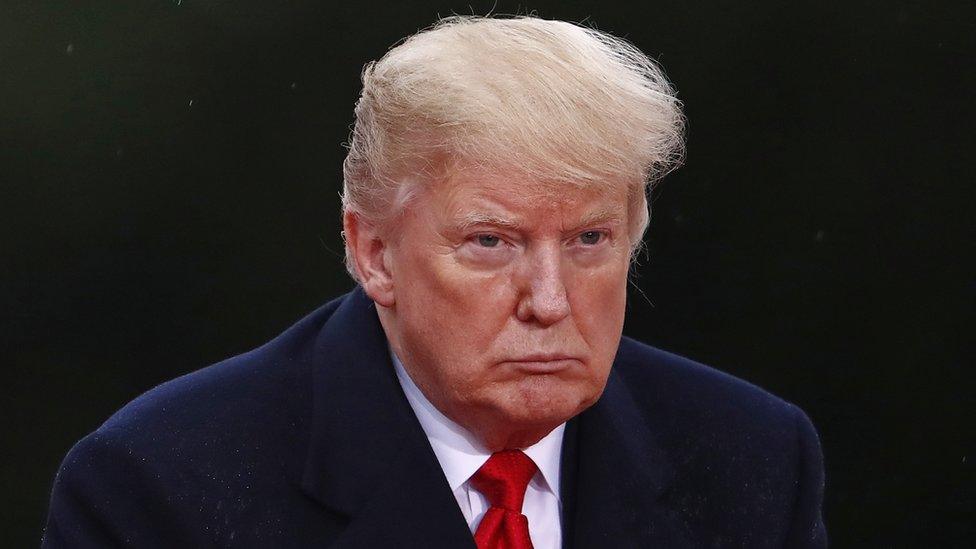
- Published18 November 2018
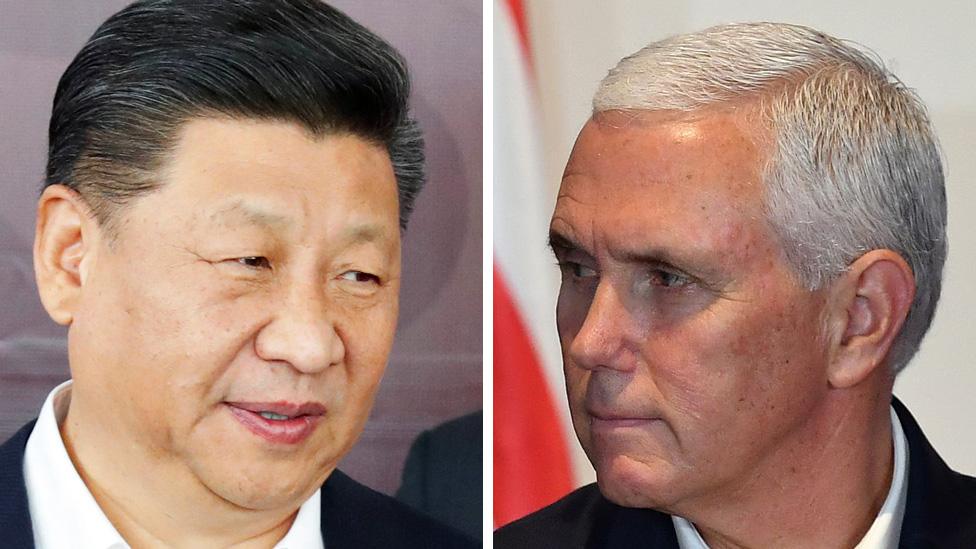
- Published26 October 2018
